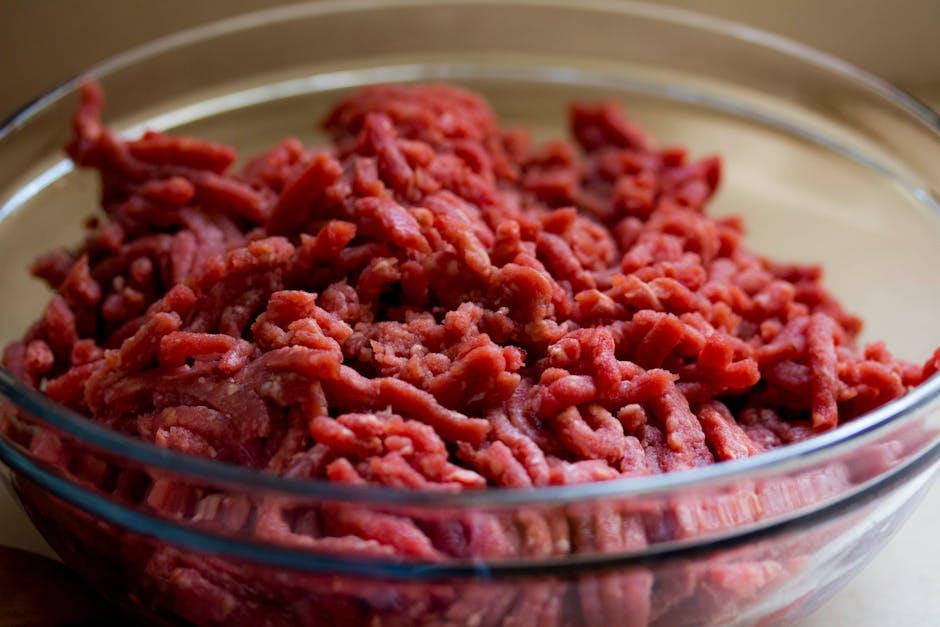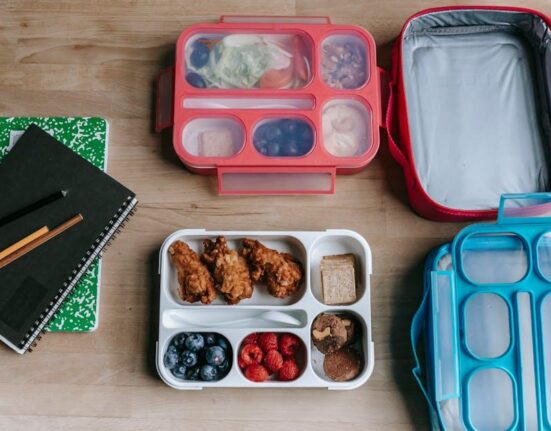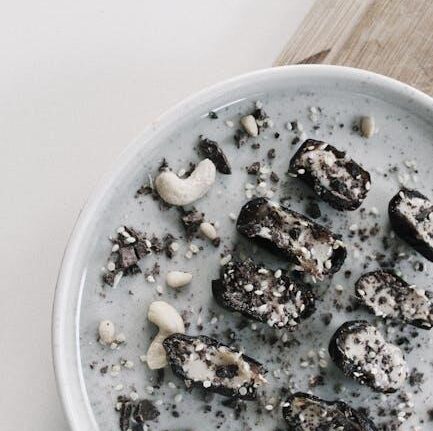In the ever-evolving world of athletic performance and nutrition, finding the perfect balance between fuel and function is a constant pursuit. Enter the ketogenic diet—a high-fat, moderate-protein, low-carbohydrate regimen that has recently gained traction among athletes seeking to optimize energy, endurance, and recovery. But how does one tailor a keto meal plan to meet the unique demands of rigorous training and competition? This article delves into the science and strategy behind crafting a keto meal plan specifically designed for athletes, offering practical insights to help maximize performance while staying true to the principles of ketosis. Whether you’re a seasoned competitor or an aspiring fitness enthusiast, understanding how to nourish your body on keto could be a game-changer in your athletic journey.
Table of Contents
- Understanding the Role of Ketogenic Nutrition in Athletic Performance
- Balancing Macronutrients for Optimal Energy and Recovery
- Strategic Meal Timing to Enhance Endurance and Strength
- Incorporating Nutrient-Dense Foods for Vitality and Muscle Maintenance
- Sample Keto Meal Plan Tailored for Diverse Athletic Needs
- Q&A
- In Retrospect

Understanding the Role of Ketogenic Nutrition in Athletic Performance
Optimizing athletic performance through ketogenic nutrition involves a strategic shift in energy metabolism, moving from carbohydrate reliance to fat oxidation. This adaptation allows athletes to tap into a more sustainable fuel reservoir, potentially enhancing endurance and mental clarity during prolonged activities. By reducing carbohydrate intake and increasing healthy fats, the ketogenic diet encourages the body to become highly efficient at burning fat for energy, which can reduce fatigue and improve recovery times. However, it’s essential to tailor the macronutrient balance carefully to meet the unique demands of different sports and training intensities.
Incorporating ketogenic principles effectively requires attention to key nutritional elements such as:
- High-quality fats: Avocados, nuts, seeds, and omega-3-rich fish to support cell function and inflammation control.
- Moderate protein: Adequate amounts for muscle repair without kicking the body out of ketosis.
- Electrolyte balance: Sodium, potassium, and magnesium to prevent cramps and maintain hydration.
| Performance Factor | Ketogenic Benefit |
|---|---|
| Endurance | Enhanced fat oxidation for sustained energy |
| Recovery | Reduced inflammation and oxidative stress |
| Mental Focus | Stable blood glucose, promoting cognitive clarity |

Balancing Macronutrients for Optimal Energy and Recovery
Achieving the right balance of macronutrients is crucial for athletes following a ketogenic lifestyle, ensuring sustained energy levels and efficient recovery. While fats take center stage as the primary energy source, protein plays a vital role in muscle repair and growth, and carbohydrates must be carefully timed and limited to maintain ketosis without compromising performance. Prioritizing healthy fats such as avocados, nuts, seeds, and MCT oil can keep glycogen stores stable, enabling longer endurance. Meanwhile, incorporating adequate protein from sources like fatty fish, grass-fed meats, and eggs supports muscle synthesis without kicking the athlete out of ketosis.
Understanding how to distribute these macronutrients throughout the day optimizes both training output and recovery phases. Here’s a quick visual breakdown of suggested macronutrient ratios for a typical keto athlete:
| Macronutrient | Percentage of Daily Intake | Good Sources |
|---|---|---|
| Fats | 65-75% | Avocados, olive oil, nuts, MCT oil |
| Proteins | 20-25% | Salmon, chicken, eggs, whey protein |
| Carbohydrates | 5-10% | Leafy greens, berries, low-carb veggies |
- Pre-workout: Focus on moderate protein with fats to fuel endurance
- Post-workout: Prioritize protein to kickstart muscle repair with small controlled carb intake
- Hydration and electrolytes: Essential to maintain balance and avoid keto flu symptoms

Strategic Meal Timing to Enhance Endurance and Strength
Optimizing meal timing on a ketogenic diet can significantly amplify athletic performance by aligning nutrient intake with the body’s energy demands. Consuming a fat-rich meal 60 to 90 minutes before training ensures sustained energy release, tapping into ketone bodies to fuel endurance activities without the crashes associated with carb-heavy meals. Post-workout meals, rich in moderate protein and healthy fats, help repair muscle tissue and replenish depleted glycogen stored in limited amounts. Timing is key: avoid eating too close to training to prevent digestive discomfort, but don’t delay refueling beyond two hours post-exercise to maximize recovery and adaptative strength gains.
Incorporating strategic snack windows between training sessions further supports muscle maintenance and energy balance. Consider including these options during critical timeframes:
- 30 minutes pre-workout: A small keto fat bomb or MCT oil shot for quick ketone elevation.
- Within one hour post-workout: A blend of collagen peptides and avocado or nuts to accelerate muscle repair.
- Mid-afternoon: Ketogenic-friendly snacks to sustain mental focus and physical endurance through the day.
| Timing | Recommended Foods | Primary Benefits |
|---|---|---|
| Pre-Workout (60-90 min) | Avocado, coconut oil, nuts | Steady energy, reduced hunger |
| Post-Workout (within 1 hr) | Eggs, bone broth, nut butter | Muscle recovery, inflammation reduction |
| Mid-Afternoon | Cheese, olives, dark chocolate (85%+) | Sustained focus, balanced blood sugar |

Incorporating Nutrient-Dense Foods for Vitality and Muscle Maintenance
Maximizing energy and promoting muscle retention on a keto meal plan demands a strategic focus on nutrient-dense foods. Prioritizing foods rich in essential vitamins, minerals, and healthy fats not only fuels athletic performance but also supports recovery. Integrating vibrant leafy greens, antioxidant-packed berries, and omega-3 abundant sources like wild-caught salmon will enhance cellular function and reduce inflammation. By incorporating these powerhouse ingredients, athletes can maintain vitality while adhering to strict carbohydrate limits.
- Leafy Greens: Spinach, kale, arugula – dense in magnesium and iron
- Fat Sources: Avocado, MCT oil, grass-fed butter
- Protein: Pasture-raised eggs, fatty cuts of meat, collagen peptides
- Low-Carb Vegetables: Broccoli, cauliflower, zucchini
| Food Category | Key Nutrients | Benefit |
|---|---|---|
| Salmon | Omega-3, Protein | Supports muscle repair and reduces inflammation |
| Spinach | Magnesium, Iron | Enhances energy metabolism and oxygen transport |
| Avocado | Monounsaturated fats, Potassium | Promotes sustained energy and electrolyte balance |
Pairing these nutrient-rich foods with targeted supplementation can further optimize muscle maintenance during ketosis. Emphasizing whole food sources ensures a steady supply of amino acids, antioxidants, and minerals critical for endurance and strength. With thoughtful planning, athletes can experience enhanced vitality and recovery while keeping their ketogenic goals intact.

Sample Keto Meal Plan Tailored for Diverse Athletic Needs
Crafting a ketogenic meal plan that aligns with athletic performance demands careful consideration of macronutrient ratios tailored to diverse energy needs. For endurance athletes, meals might emphasize moderate protein with higher fat content to sustain prolonged energy release, while strength trainers could benefit from slightly elevated protein levels to support muscle repair and growth. Incorporating nutrient-dense, low-carb vegetables such as spinach, kale, and avocado ensures essential vitamins and minerals without disrupting ketosis. Snack options like mixed nuts or cheese cubes provide convenient bursts of energy, keeping athletes fueled between workouts.
To illustrate, here’s a sample daily menu designed for varied athletic profiles, showcasing simplicity and effectiveness within keto parameters:
| Meal | Endurance Athlete | Strength Athlete | Mixed-Training Athlete |
|---|---|---|---|
| Breakfast | Avocado and spinach omelette with olive oil drizzle | Three-egg scramble with bacon and cheddar | Keto smoothie with coconut milk, spinach, and peanut butter |
| Lunch | Grilled salmon, arugula salad, and macadamia nuts | Chicken breast with steamed broccoli and butter | Beef stir-fry with zucchini noodles and sesame oil |
| Dinner | Cauliflower rice with shrimp and garlic sauce | Pork chops with roasted asparagus and avocado slices | Baked cod with sautéed mushrooms and kale |
| Snacks |
|
|
|
Q&A
Q&A: Keto Meal Plan for Athletes
Q1: What exactly is a keto meal plan, and how does it differ for athletes?
A1: A keto meal plan focuses on high fat, moderate protein, and very low carbohydrates to induce a metabolic state called ketosis. For athletes, this plan is carefully adjusted to support energy demands and recovery, often incorporating strategic carb timing and electrolyte management to maintain peak performance.
Q2: Can athletes really perform well on a ketogenic diet?
A2: Yes, many athletes thrive on a keto diet once they adapt. Fat becomes the primary fuel, which is a nearly limitless energy source. However, during the adaptation phase, performance might dip temporarily as the body learns to switch fuel sources. Endurance athletes particularly benefit, while those relying on explosive power may need to tweak macronutrients.
Q3: What should a typical day look like on a keto meal plan for athletes?
A3: A typical day might start with eggs cooked in coconut oil and avocado, lunch could be grilled salmon with leafy greens and olive oil, while dinner might include a juicy steak with cauliflower mash. Snacks like almonds or cheese help maintain energy, and hydration with electrolytes is key. Carb intake is usually under 50 grams daily but can be increased around workouts.
Q4: How important is protein in a keto meal plan for athletes?
A4: Protein is crucial for muscle repair and growth but needs balance. Too much can kick you out of ketosis, so athletes aim for moderate protein intake tailored to their workload—often around 1.2 to 2.0 grams per kilogram of body weight.
Q5: Are there any special considerations for athletes new to keto?
A5: Absolutely! Newcomers should ease into keto to prevent “keto flu” symptoms like fatigue or headaches. They should monitor electrolytes, stay hydrated, and gradually reduce carbs to allow the body to adapt. Consulting with a nutritionist or dietitian who understands athletic needs is highly recommended.
Q6: How does a keto meal plan affect recovery after training?
A6: Fat and adequate protein support muscle repair, while ketones may reduce inflammation. Some athletes find faster recovery and less soreness. Strategic carb intake post-workout can help replenish glycogen stores when needed, balancing recovery with ketosis.
Q7: Can keto be combined with carb cycling for athletes?
A7: Yes! Many athletes use targeted or cyclical keto approaches—introducing carbs strategically around heavy training or competition days. This method maintains keto benefits while providing extra fuel for intense efforts.
Q8: What are typical challenges athletes face on keto, and how can they overcome them?
A8: Challenges include adapting energy levels, maintaining electrolyte balance, and meal preparation complexity. Overcoming them involves patience, proper hydration, supplementing key minerals (sodium, potassium, magnesium), and meal prepping to ensure nutrient-rich, keto-friendly foods are always ready.
Q9: Which foods are best to include or avoid on a keto meal plan for athletes?
A9: Include healthy fats like avocado, olive oil, nuts, and fatty fish; moderate protein from meat, eggs, and dairy; and low-carb veggies such as spinach and broccoli. Avoid high-carb foods like bread, pasta, sugary drinks, and starchy vegetables.
Q10: Is keto suitable for all types of athletes?
A10: Keto works best for endurance athletes and those seeking fat loss or metabolic efficiency. Explosive sports requiring quick bursts of energy might find strict keto limiting unless adapted with carb cycling. Individual experimentation and professional guidance are key to finding the right balance.
In Retrospect
As the final whistle blows on our exploration of the keto meal plan for athletes, it’s clear that this high-fat, low-carb approach offers more than just a dietary shift—it presents a strategic fuel choice. Whether you’re chasing personal bests or simply seeking stamina that lasts, tailoring your nutrition to ketosis can unlock a new level of performance. Remember, like any game plan, success lies in thoughtful execution and listening to your body’s signals. So lace up, fuel smart, and let your keto journey power every stride toward your athletic goals.













Leave feedback about this